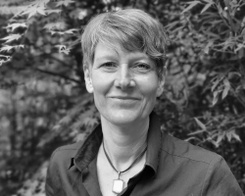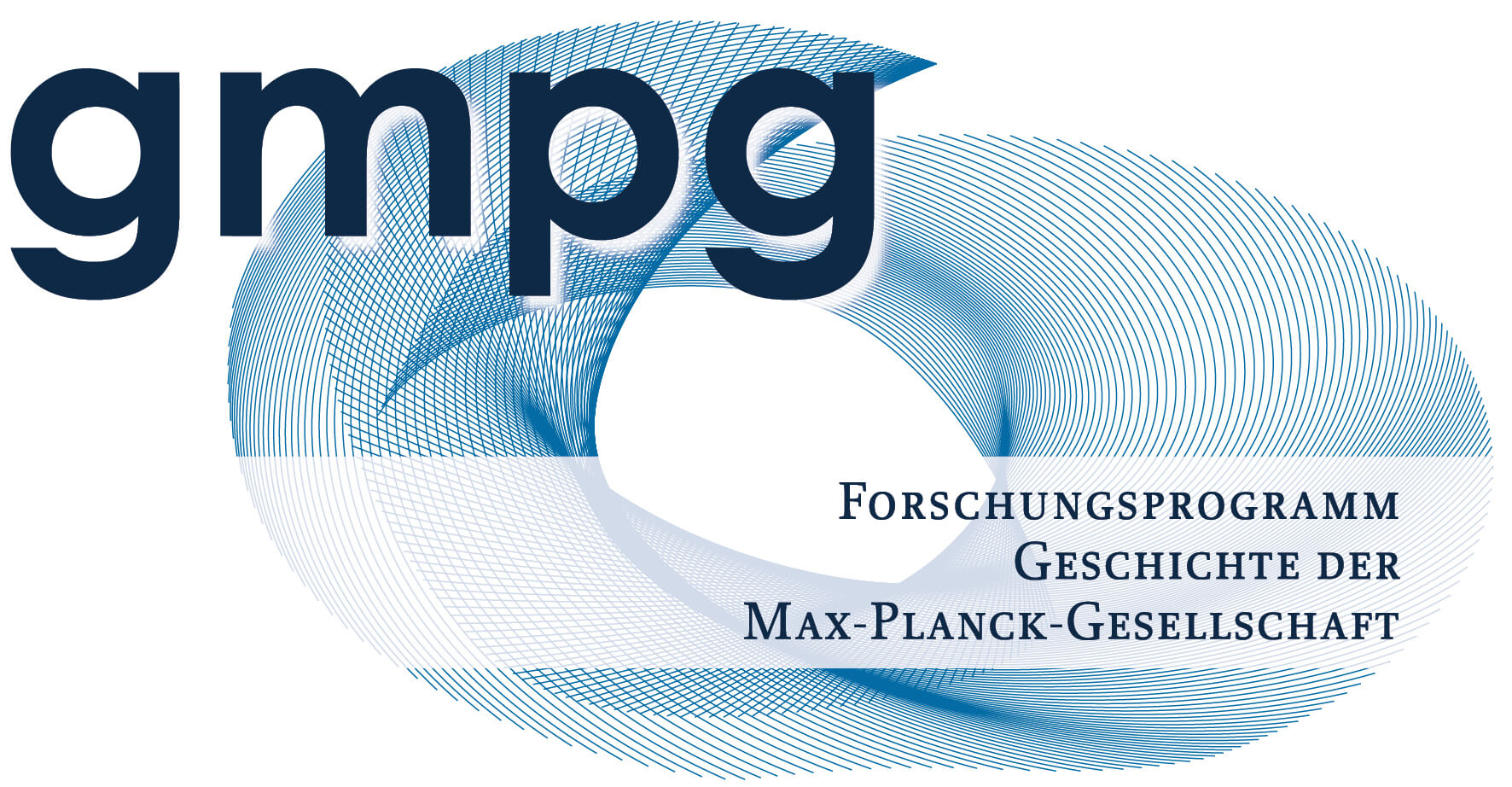
Contact
- Phone:
- Email:
Dr. Britta Behm
Focus Area:
History of Research on Human Development in the Max Planck SocietyProfile
Britta Behm has been part of the Research Program on the History of the Max Planck Society (GMPG) since 2019. She received her PhD in the field of early modern German-Jewish history from the Universität Hamburg in 2001. For ten years she worked on organizational and governance issues in the management of higher education institutions, at the FernUniversität in Hagen, the Humboldt-Universität zu Berlin, and at the CHE Consult GmbH in Gütersloh. She has re-entered academia in 2012/13, concentrating her research on the history of science and education (Bildung) in the twentieth century and on concepts of a history of knowledge. Her overall interest is to gain a better understanding of the changing roles of the social sciences and humanities in modern societies in order to rethink their current self-concepts and responsibilities. She held a visiting position at the Bibliothek für Bildungsgeschichtliche Forschung in Berlin (Department of the DIPF, Leibniz Institute for Research and Information in Education) and taught history of education and of the social sciences at the Martin-Luther-Universität in Halle-Wittenberg.
Within the framework of the GMPG project, Britta Behm is focusing on the history of the Max Planck Institute for Human Development (Max-Planck-Institut für Bildungsforschung, MPIB), which was founded in West Berlin in 1963. While concentrating on the key moments of the institute’s history until 2002, the overall objective of her research is to gain a better understanding of the Max Planck Society’s main features. She thus explores the role and function of the MPIB within the MPG, especially bearing in mind that the MPIB was shaped by the social sciences and was (at least until 1981) aligned to policy counseling, whereas the MPG has maintained a profile and self-concept that emphasizes the sciences and "pure" or basic research. In addition, it will be necessary to examine how the MPIB has implemented the MPG’s organizational attributes, such as the (Adolf von) Harnack principle, which serves as a guideline for selecting the institutes’ leaders and for allocating resources within the MPG. In line with the methodological standards of the GMPG project, science history will be reconstructed as an integral part of contemporary history. With regard to the history of research organizations, particular attention will be paid on the organizational paradox to manage the "production of innovation."
Personal Page at the Max Planck Institute for the History of Science
Selected Publications
Behm, Britta: "Zu den Anfängen der Bildungsforschung in Westdeutschland 1946 – 1963. Ein wissensgeschichtlicher Blick auf eine 'vergessene' Geschichte." In: Sabine Reh, Edith Glaser, Britta Behm und Tilman Drope (Hg.): Wissen machen. Beiträge zu einer Geschichte erziehungswissenschaftlichen Wissens in Deutschland zwischen 1945 und 1990. (Zeitschrift für Pädagogik, 63. Beiheft). Weinheim/Basel: Beltz 2017, 34–69.
Behm, Britta, Tilman Drope, Edith Glaser und Sabine Reh: "Wissen machen – Beiträge zu einer Geschichte erziehungswissenschaftlichen Wissens in Deutschland zwischen 1945 und 1990. Einleitung zum Beiheft." In: Sabine Reh, Edith Glaser, Britta Behm und Tilman Drope (Hg.): Wissen machen. Beiträge zu einer Geschichte erziehungswissenschaftlichen Wissens in Deutschland zwischen 1945 und 1990. (Zeitschrift für Pädagogik, 63. Beiheft). Weinheim/Basel: Beltz 2017, 7–15.
Behm, Britta und Sabine Reh: "(Empirische) Bildungsforschung – notwendig außeruniversitär? Eine Sondierung der Geschichte westdeutscher Bildungsforschung am Beispiel des Deutschen Instituts für Internationale Pädagogische Forschung (DIPF)". In: Jürgen Baumert und Klaus-Jürgen Tillmann (Hg.): Empirische Bildungsforschung. Der kritische Blick und die Antwort auf die Kritiker. (Zeitschrift für Erziehungswissenschaft, 19/Suppl. 1). Wiesbaden: Springer 2016, 107–127. (DOI: 10.1007/s11618-016-0701-7)
Edited Volumes
Reh, Sabine, Edith Glaser, Britta Behm, Tilman Drope (Hg.): Wissen machen. Beiträge zu einer Geschichte erziehungswissenschaftlichen Wissens in Deutschland zwischen 1945 und 1990. (Zeitschrift für Pädagogik, 63. Beiheft). Weinheim/Basel: Beltz 2017.
Lohmann, Ingrid, Uta Lohmann und Britta Behm (Hg.): Jüdische Bildungsgeschichte in Deutschland. 5 Bände. Münster [u.a.]: Waxmann 2001-2002.
Behm, Britta, Ingrid Lohmann und Uta Lohmann (Hg.): Jüdische Erziehung und aufklärerische Schulreform. Analysen zum späten 18. und frühen 19. Jahrhundert. Münster [u.a.]: Waxmann 2002.
Behm, Britta, Gesa Heinrichs und Holger Tiedemann (Hg.): Das Geschlecht der Bildung – Die Bildung der Geschlechter. Opladen: Leske + Budrich/Springer VS 1999.
Monographs
Behm, Britta: Moses Mendelssohn und die Transformation der jüdischen Erziehung in Berlin. Eine bildungsgeschichtliche Analyse zur jüdischen Aufklärung im 18. Jahrrundert. [Zugl. Diss. Univ. Hamburg] Münster: Waxmann 2002.
Book Sections
Behm, Britta und Anne Rohstock: "Loyalität. Zur verdeckten Regulierung von Denk-/Bewegungen in wissenschaftlichen Feldern. Eine Sondierung am Beispiel der Geschichte westdeutscher Bildungsforscher". In: 26. DGfE-Kongressband (Kongress der Deutschen Gesellschaft für Erziehungswissenschaft, März 2018 in Essen)/Titelei steht noch aus; der Artikel ist angenommen, Publikation vorauss. Ende 2019.
Behm, Britta and Christian Berthold: "Developing Strategies for a Higher Education Institution and its Faculties/Departments." In: Sjur Bergan, Eva Egron-Polak, Jürgen Kohler, Lewis Purser and Martina Vukasović (Eds.): Leadership and Governance in Higher Education - Handbook for Decision-makers and Administrators. Supplemental Vol. No. 1. Berlin: Raabe 2011, 63–92.
Journal Articles
Behm, Britta: "Deutsche Erziehungswissenschaft in Bedrängnis? Zum Wissen um die empirische (Bildungs-)Forschung anlässlich der Kritik einer soziologischen Analyse." In: Bildungsgeschichte. International Journal for the Historigraphy of Education 6 (2016)2, 176-186.
Book Reviews
Behm, Britta: "Sammelrezension: Die deutsche Reformpädagogik und der Missbrauchsskandal (Jens Brachmann: Reformapädagogik zwischen Re-Education, Bildungsexpansion und Missbrauchsskandal. Die Geschichte der Vereinigung Deutscher Landerziehungsheime 1947-2012. Bad Heilbrunn; Jürgen Oelkers: Pädagogik, Elite, Missbrauch. Die » Karriere « des Gerold Becker. Weinheim 2016)" Rezensiert für Historische Bildungsforschung Online bei H-Soz-Kult. http://hsozkult.geschichte.hu-berlin.de/rezensionen/2016-4-030; 17.10.2016.
Presentations
19/03/2018
26. DGfE-Kongress, Symposium: "Grenzen markieren, Zugänge regulieren: (Erziehungs-)Wissenschaft als Objekt hegemonialer Kämpfe," Universität Duisburg-Essen, Essen
Talk together with Prof. Dr. Anne Rohstock/ Univ. Tübingen: Loyalität. Über die Regulierung von Denkbewegungen im wissenschaftlichen Feld
18/08/2016
International Standing Conference for the History of Education (ISCHE) 38, Panel BBF/PH Zürich: "Body at Risk II: creating the social collective through education," Loyola University Chicago, USA
Talk: Constructing the ‘efficient body’. Body politics and the formation of “empirische Bildungsforschung“ (empirical education research) in Western Germany, 1954-1964
20/05/2016
Kick-off-Workshop of the Leibniz Working Group "Migration und Bildung in Deutschland seit 1945," Georg-Eckert-Institut (GEI), Braunschweig
Talk: Wissensgeschichtliche Perspektiven auf die Bildungsgeschichte der Bundesrepublik
